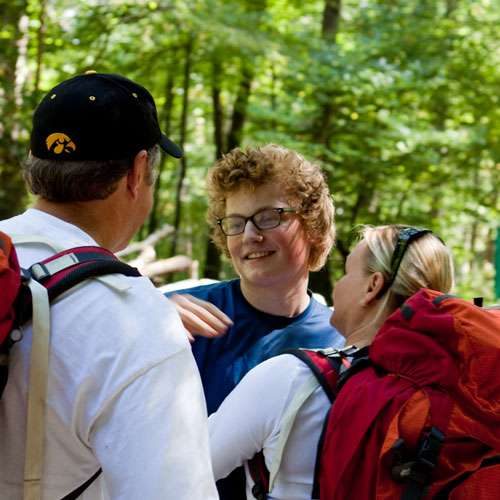In this day and age, it is impossible to deny a simple truth: animals are taking over the world with cuteness. Be it cat videos or the Puppy Bowl, when animals enter the picture, everything else seems to fade away. But what if this adorable fuzziness could be used to heal various types of trauma? Enter animal therapy.
When many people think of animal therapy, they service animals such as guide dogs. In reality, however, the applications of animal therapy stretch far beyond aiding people with physical disabilities. From relieving stress to helping cope with grief, animal therapy can provide a wide range of benefits. If your child is having trouble adapting to the world, animal therapy may be the solution.
Why Animal Therapy?
Many types of therapy exist in the word today, so why choose animal therapy? The reason is simple: animal therapy is among the most natural of them all. Animal therapy doesn’t focus on the negative aspects of whatever issue or illness your child may be experiencing. Instead, it utilizes a healthy approach to facilitate healing. So much so, in fact, that animal therapy has been shown to boost “good” chemicals in the brain – that lower blood pressure, reduce stress levels, and are even capable of fighting depression. Along with increasing happiness levels, the hormone oxytocin also helps build new cells, essentially preparing the body for the healing process.

Image source: Flickr user- davidlocke
Animal therapy has been shown to lead to healthier behaviors as well: after animal therapy, many people experience better eating and sleeping habits, exercise more, and exhibit better fitness levels overall. Research has shown that animal therapy even helps heart attack patients.
How Animal Therapy Helps
The benefits of animal therapy are far too numerous to count, with the physical aspect merely being one facet. The psychological impact is as great, if not greater. These effects can be grouped into several categories:
- Building relationships
- Teaching responsibility
- Opening up paths to other forms of therapy
- Educating through fun
Building Relationships
The social aspect of animal therapy is one of its most important features. Virtually everyone has some sort of skeletons in the closet. Family relationships can be hard. Not so with animal therapy – to call animals’ love unconditional would be to oversimplify their nature. It would be more accurate to describe the relationship as less complicated and more based on cause-and-effect. That, however, does not mean that the love is simpler: as research has shown, the human-animal bond can, in some cases, be comparable to a family connection.
Animal therapy teaches kindness without judgement and, quite frequently, these lessons encourage people to become better in their human-to-human relationships.
Teaching Responsibility
Taking care of an animal requires a certain routine. While the actions may not seem like chores – after all, going on a walk with a dog is more relaxing than anything else – they are still ways of strengthening responsibility. By putting the animal’s needs in the hands of the human, a new level of trust is built between the two. This helps strengthen individuality, self-reliance, and self-esteem: after all, being able to watch over an animal can be the first step on the journey to successfully functioning around other people.
Opening Up Paths to Other Forms of Therapy
Animal therapy is honest. Oftentimes, a child will have difficulty opening up to adults. An animal, however, is the basis of a safe environment. Animals are capable of keeping the deepest, darkest secrets. As a result, a child is more likely to tell their issues to an animal – and once the cat is out of the bag, the child will feel more comfortable sharing their feelings with a professional or their parents.
Educating through Fun
Animal therapy is not solely focused on the therapy aspect – the truth is, animals are fun, and having fun is imperative to feeling better. Having the ability to play with animals, touch them, and develop an active, physical connection can make your child feel better. Dogs (and horses, and other animals) aren’t merely man’s best friend – they are often the best form of therapy in the world.
Trails Carolina can help
Trails Carolina, a wilderness therapy program for teens ages 10-14, can help your struggling teen find success. We offer equine programming and bring therapy dogs on campus to help teens through their healing process.
For more information about Trails Carolina, please call 800-975-7303 today!
Get started today
Contact us today to learn how Trails Carolina can help your family
Trails saved my daughter’s life. Amanda is an amazing human and a brilliant therapist. I am so grateful to her, Science Steve, and the other wonderful people who could reach my daughter at a time when I could not.
Margot Lowman August 2022
Great life changing experience for our son. After becoming addicted to gaming during covid he was very depressed. At Trails he experienced the wilderness, Science Steve, learning survival skills and top notch therapy and support etc… I highly recommend! This gave our son and our family a renewed family bond full of love and excitement about his bright future.
Winnifred Wilson July 2022
Outstanding clinical work and superb staff! There’s a great culture at this company and it shows with how they engage with families/clients.
Kristin Brace June 2022
Discover If Trails Is The Right Program For Your Child
Take our short online assessment and help us better understand how we can help your family.




